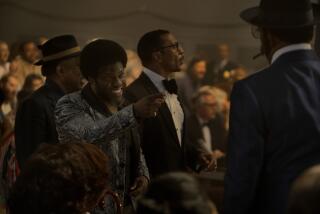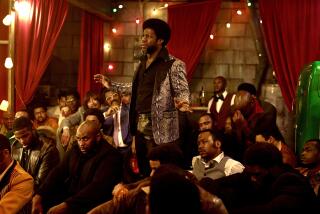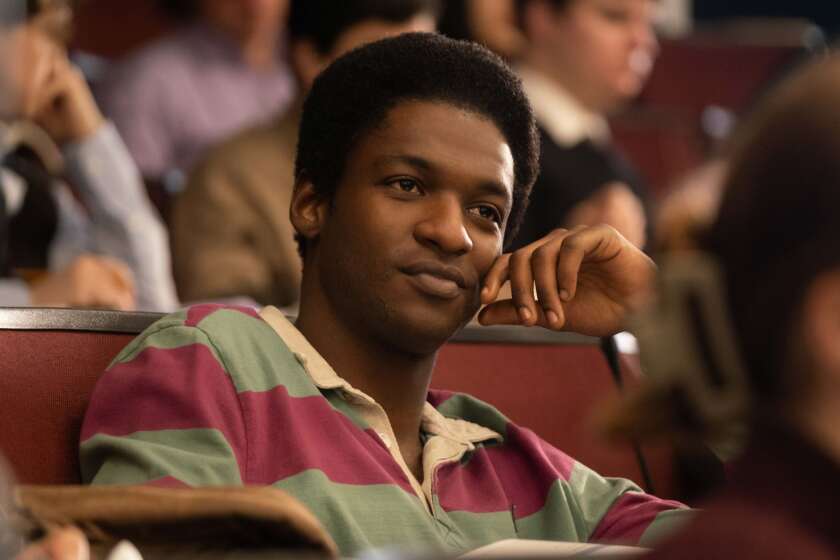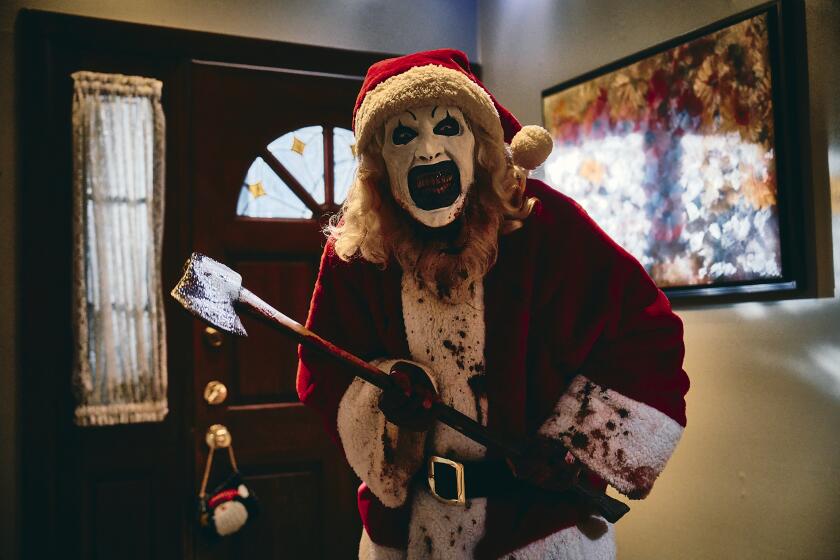Two movies warring in one
There are two films at war in director Spike Lee’s newest feature “25th Hour,” one uninteresting, the other an epic of near-tragic miscalculation. Edward Norton stars in the first, a story about a convicted New York City drug dealer, Montgomery Brogan, during his last day of freedom before beginning a seven-year stretch in prison. The second, which winds its way through the first like a snake only to swallow it whole, is a misguided elegy for the city that Monty is leaving, one in which fallen heroes, ground zero and some vague notion about the indomitability of the American spirit each plays a part.
The film opens with a grainy night scene of Monty rescuing a dog. Snapping and growling and covered with cigarette burns, the mutt has been tortured, then abandoned at the side of a road, which is where Monty finds him. “I like this guy,” the dealer tells his friend, Kostya (former NFL star Tony Siragusa), before wrapping the dog in a blanket and tossing him into the trunk of his muscle car. There are all sorts of ways to look at a scene like this one, including the obvious: The guy has a soft spot for lost causes. As the story unfolds, however, and we spend more time with Monty as he waits out his last free 24 hours, it becomes evident that the mutt is carrying an undue load of heavy symbolic baggage.
The dog isn’t the only one burdened. Written by David Benioff, who adapted the screenplay from his well-reviewed novel, “25th Hour” is about a man who, having abandoned all responsibility -- to his family, friends and city -- is forced to take stock of his life. Benioff has preserved the trajectory of Monty’s long night, but what’s gone missing in the translation is the character himself. In the novel, Monty sells dope because he likes what it gives him: money, a fast car, a beautiful girlfriend and what he calls “sway,” the power to walk into a store and know you can buy anything. His mother died when he was a kid, but Benioff doesn’t pretend that explains why he sells heroin in playgrounds. Monty sells dope because he’s greedy and amoral; he sells it because he can.
It isn’t until the final few pages of the book that Monty grasps the full measure of his choices. By then, all of his family and friends have had their say about him, as has the author, who throughout keeps a cool distance from the character. This distance distinguishes Benioff’s modest character study but also makes it tough for Lee to get a bead on Monty. We don’t like moral ambivalence in our movies, and unsympathetic characters are always trickier to put on screen than between the pages of the novel. Ambivalence has never been one of Lee’s problems -- or his strengths. As a filmmaker, he loves as fiercely as he hates, but he’s never indicated much interest in exploring the vast gray zone in between, where real people live.
Lee seems stumped by Monty, or maybe he doesn’t care. Presented with a character with a hole where his conscience should be, Lee makes the calamitous mistake of connecting Monty with Sept. 11, imbuing the character with tragedy by proxy. After the opening scene, the film flashes forward to the present, with Monty sitting with his dog on the Brooklyn promenade and staring toward lower Manhattan. When Monty visits the bar owned by his father (Brian Cox), a photograph of a fallen firefighter stares out from a wall; later, when two of Monty’s oldest friends, Jacob (Philip Seymour Hoffman) and Slaughtery (Barry Pepper), talk about him, they’re framed against a window looking over ground zero. Even if you don’t know the geography, you get the picture; ever the didact, Lee makes sure of it.
As “25th Hour” drags on, accompanied by the dirge-like wailing of Terence Blanchard’s score, the films two halves grow further apart. There’s the one in which Monty broods about New York, licking his wounds, enduring a farewell meal with his dad and wondering if the woman with whom he’s shared his life, Naturelle (Rosario Dawson), tipped off the cops. In the other story, there is simply the city with its dusty air and memorials, its tattered flags and anguish. This desperate, melancholic vision clenches the heart but makes no sense in the context of the story. You don’t doubt Lee’s grief about what happened to his city, but this is passion deployed in a vacuum. Monty’s pity remains securely self-directed throughout; the dealer does nothing, has done nothing, to earn a stake in such tragedy.
As a performer, Norton always seems ready to pounce even when slouched on a sofa, but he’s given little to grab hold of here. He signals Monty’s anger and fear, but the emotions never deepen into self-recognition because the character hasn’t been designed for consciousness. It says something about Lee’s commitment to the character and to the material overall that Monty is never more alive, and more persuasive, than during a hate-filled harangue toward New York’s multihued inhabitants. The rest of the performances are professional, no more, although mention must be made of Anna Paquin, who has the unfortunate task of playing one of Jacob’s students, a repellent creature whom Lee films with all the affection he would bestow on cockroach.
*
‘25th Hour’
MPAA rating: R for strong language and some violence.
Times guidelines: There are sounds of a dog being beaten and several graphic scenes in which men are beaten.
Edward Norton...Monty Brogan
Philip Seymour Hoffman...Jacob Elinsky
Barry Pepper...Francis Xavier Slaughtery
Rosario Dawson...Naturelle Rivera
Anna Paquin...Mary D’Annunzio
Touchstone Pictures presents a 40 Acres and a Mule Filmworks/Industry Entertainment/Gamut Films production. Director Spike Lee. Writer David Benioff. Producers Tobey Maguire, Julia Chasman. Director of photography Rodrigo Prieto. Production designer James Chinlund. Editor Barry Alexander Brown. Music Terence Blanchard. Costume designer Sandra Hernandez. Running time: 2 hours, 15 minutes.
Exclusively at the Arclight, 6360 Sunset Blvd., Hollywood (323) 464-4226, and the AMC Century 14, 10250 S. Santa Monica Blvd. (310) 289-4262.
More to Read
Only good movies
Get the Indie Focus newsletter, Mark Olsen's weekly guide to the world of cinema.
You may occasionally receive promotional content from the Los Angeles Times.










